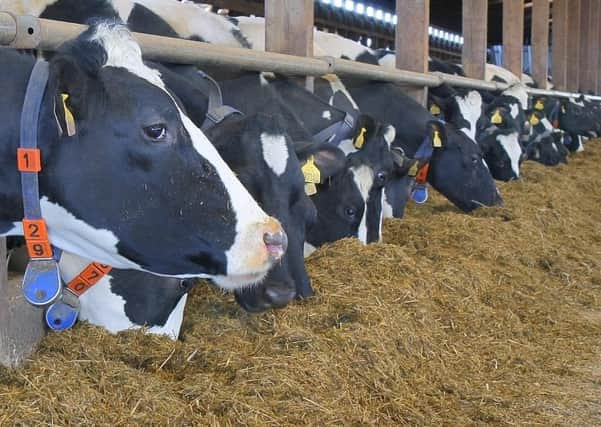Precision nutrition reduces emissions


“Sustainability has been a major theme for our businesses for many years” according to Robin Irvine, Chief Executive of the Grain Trade Association.
The remarkable success of the sector and the growth in livestock production have only been possible through the development of sophisticated nutritional packages and a focus on reducing emissions to air and water. “Precision Nutrition is the mantra – as we aim to precisely establish the nutritional requirements for growth and production for the different ages and stages of farmed livestock and then supply exactly the nutrients required to support them. Avoiding over-supply of nutrients reduces the potential for surpluses to be excreted in the form of Ammonia, Greenhouse Gasses and Phosphates which are damaging to the environment and can also represent an unnecessary cost to the farm business.”
Advertisement
Advertisement
This approach has been supported by extensive research programs funded by the trade and carried out by the Agri Food and Biosciences Institute (AFBI).
“We have been able to establish the long term effects of dietary changes on animal health and productivity and this has enabled greater efficiencies to be achieved in rationing livestock. The use of enzymes has been particularly effective in improving the utilisation of nutrients and synthetic amino acids have been used to good effect in reducing the level of protein used in diets. The management of anti-nutritional contaminants in the supply chain has greatly improved with the introduction of the Food Fortress surveillance program. This identifies substances such as mycotoxins which impact on performance and feed efficiency and advises feed businesses on effective mitigation strategies.
“The ongoing genetic improvement and productivity gains from improved husbandry and management practices are also contributing to significant improvements in feed efficiency. Measures which extend the productive life of a dairy cow - or reduce the age at slaughter for beef animals help reduce emissions from the ruminant sector while making a major contribution to farm profitability.
“Local companies are leading the development of innovative feed additives and feeding practices which have the greatest potential to contribute to reductions in greenhouse gas (GHG) emissions from cattle production. Adjustments to cattle diets, such as achieving the optimum balance of concentrates to forages, as well as the use of feed additives and nutritional supplements, can reduce GHG emissions.
Advertisement
Advertisement
“There are several methane-reducing feed additives on the market, including products based on garlic and citrus, clover and coriander seed, 3-Nitrooxypropanol, and seaweeds. The potential of the various technologies to reduce emissions range from 10% to 90% reduction and all are being fully evaluated and costed. Feed scientists are committed to support sustainable livestock production and the work continues to refine and improve these products and to search for new approaches which will deliver further reductions in the coming years.”